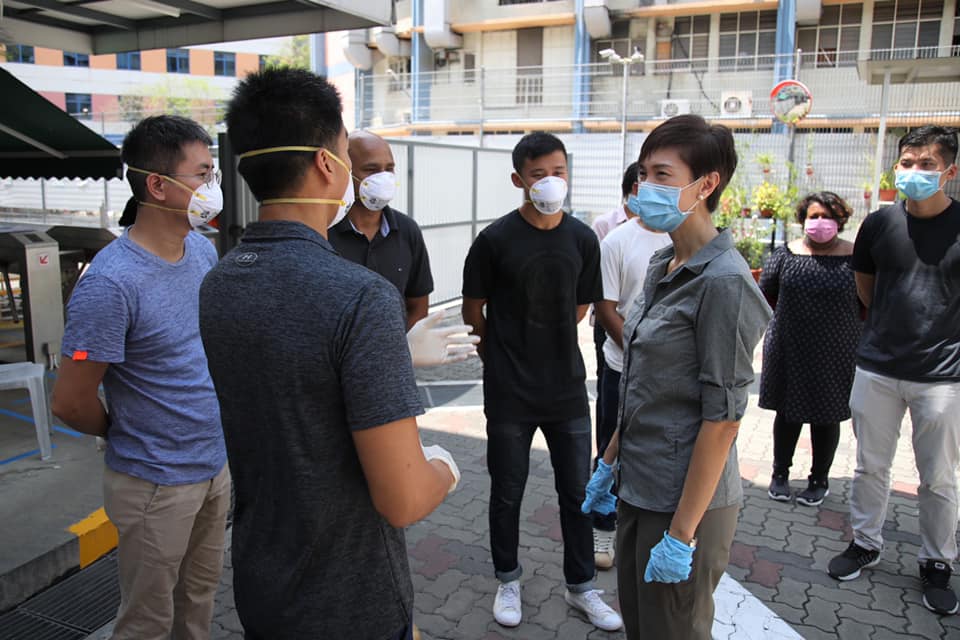Manpower minster Josephine Teo has expressed her support for the "extensive testing approach" of testing all 300,000 plus migrant workers residing in dormitories.
This approach was first announced by Minister for National Development Lawrence Wong, in a press conference on May 12.
"The number will remain high"
In a Facebook post on May 14, Teo said "the number of reported infections will remain high" as a result of such comprehensive testing.
"But we should not be overly alarmed," she said.
"It is better to test, so that we know what we’re dealing with and can then take the right actions."
Few countries have tested their migrant populations extensively, she said, with far fewer undertaking to test all their workers.
This robust testing strategy will allow us to detect infections in workers who have mild or no symptoms, and help them receive treatment earlier.
It will also have to go "hand in hand" with other health monitoring and surveillance measures that have been put in place.
As circuit breaker measures are gradually relaxed in June, Teo also highlighted the importance of helping workers go back to work safely.
This is her Facebook post:
How will testing be carried out?
During the press conference on May 12, Wong explained that testing will be done through mass polymerase chain reaction (PCR) tests, as well as mass serological tests.
According to MOH, PCR tests, has been relied on thus far to diagnose if someone is infected with Covid-19 in Singapore, and is the globally accepted testing standard.
As for serological tests, these are used to detect antibodies to Covid-19 from a blood sample, as a marker of past infection. These tests will be applied to dormitories with a higher rate of infection.
People who have been infected by Covid-19 for more than 10 to 14 days ago will have a positive serology test.
Should a migrant worker have a positive serological test, this will mean that he has been infected at least 10 to 14 days ago. It will also mean that he will no longer be infectious after a period of isolation.
Meanwhile, migrant workers in dormitories with a lower rate of infection will be subjected to a PCR test.
Workers who have a negative result from either of these two tests, however, will be isolated for 14 days before being subjected to another PCR test, to confirm that they test negative for Covid-19.
The 14-day isolation is necessary as a test before the 14th day will not be able to exclude the possibility of the disease developing at a later point.
Top photo via Josephine Teo/FB
If you like what you read, follow us on Facebook, Instagram, Twitter and Telegram to get the latest updates.
